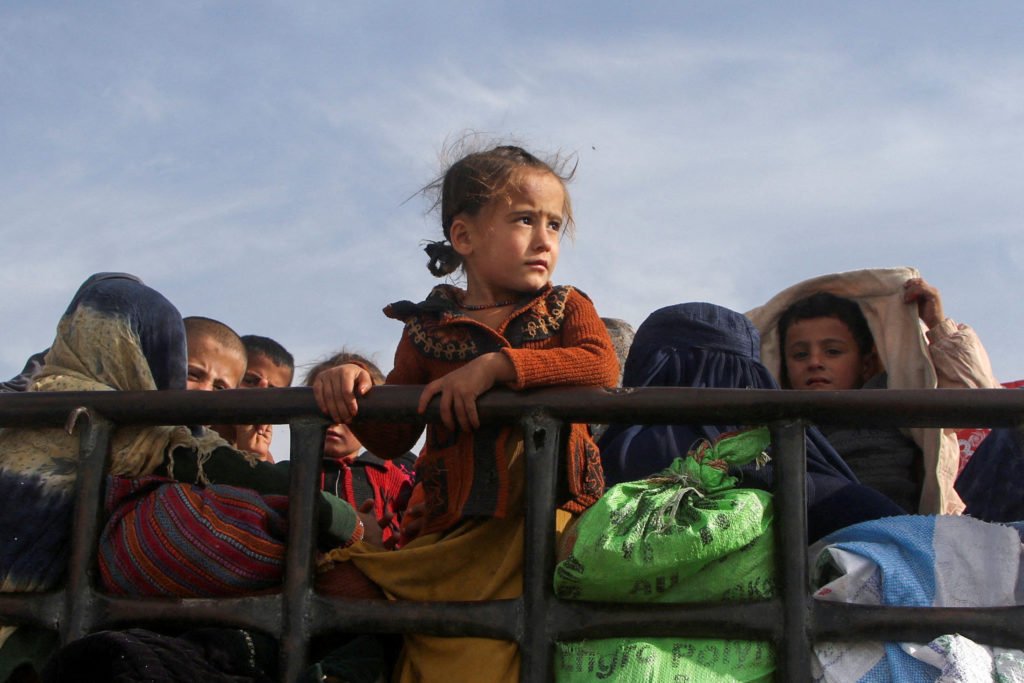Diplomats from Afghanistan’s ruling Taliban announced on Wednesday that Pakistan is set to launch a plan to rapidly deport nearly three million Afghan refugees from its territory. This plan is described as “imminent” and involves the mass removal of Afghan nationals, including legal refugees, from Pakistan’s capital Islamabad and the nearby city of Rawalpindi.
The Taliban’s embassy in Islamabad released a statement, ending weeks of speculation about a police crackdown targeting Afghan citizens. The embassy pointed out that Pakistan had not formally informed Kabul of its intention to deport refugees. Despite several attempts by the Afghan government to clarify the situation through diplomatic channels, Pakistan’s Ministry of Foreign Affairs confirmed that a final decision had been made to expel all Afghan refugees, not just from Islamabad and Rawalpindi, but from the entire country in the near future.
This announcement comes about three weeks after Pakistani Prime Minister Shehbaz Sharif approved a multi-phase plan to address the presence of Afghan refugees in Pakistan. This plan affects over 1.4 million Afghan refugees who have legal UNHCR-provided Proof of Registration (PoR) cards, allowing them to remain in Pakistan until June 30, 2025. Additionally, it includes nearly 900,000 Afghan economic migrants with Afghan Citizenship Cards (ACC), approximately 40,000 people awaiting relocation to the U.S. or other Western nations, and those living in Pakistan without legal status or who have overstayed their visas.
The Afghan embassy’s statement mentioned that Pakistani officials clarified that only Afghan nationals holding valid visas would be allowed to stay in Islamabad and Rawalpindi. The deportation of all refugees, including those with PoR and ACC cards, is expected to occur immediately, with a full expulsion planned across the country.
The UNHCR has confirmed that Pakistan intends to move all Afghan refugees out of Islamabad and Rawalpindi by February 28, except for those with valid visas. The Afghan mission has raised “serious concerns” about the swift timeline for this mass expulsion and criticized the unilateral nature of Pakistan’s decision, urging international organizations to intervene.
However, Pakistan’s Ministry of Foreign Affairs rejected claims of mistreatment during the repatriation process, with spokesperson Shafqat Ali Khan stating that the Afghan government had been engaged to ensure the smooth return of Afghan nationals.
The deportation plan includes relocating about 40,000 Afghans from Islamabad and Rawalpindi by March 31. After that, arrangements will be made for their repatriation to Afghanistan, unless their relocation to third countries is processed quickly. Many of these individuals fled Afghanistan following the Taliban’s military recapture of the country in 2021, seeking refuge from potential retribution due to their connections with U.S. and NATO forces.
In addition, last month, former U.S. President Donald Trump halted the U.S. Refugee Admission Program to evaluate whether reinstating it would benefit U.S. interests. This decision left thousands of Afghan allies stranded in Pakistan, who had been approved or were in the process of being relocated to the U.S.
The UNHCR also reported that over 825,000 undocumented Afghans have already been forcibly repatriated from Pakistan since 2023, following a crackdown on foreigners living in the country without legal permission or whose visas had expired. Islamabad justifies this crackdown by citing a recent surge in crime and militancy attributed to Afghan nationals.





